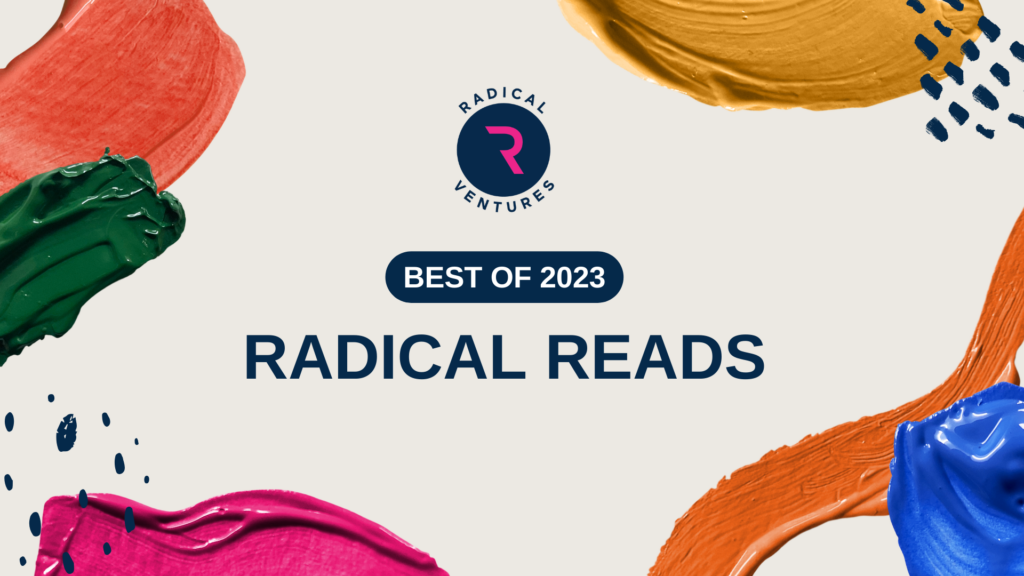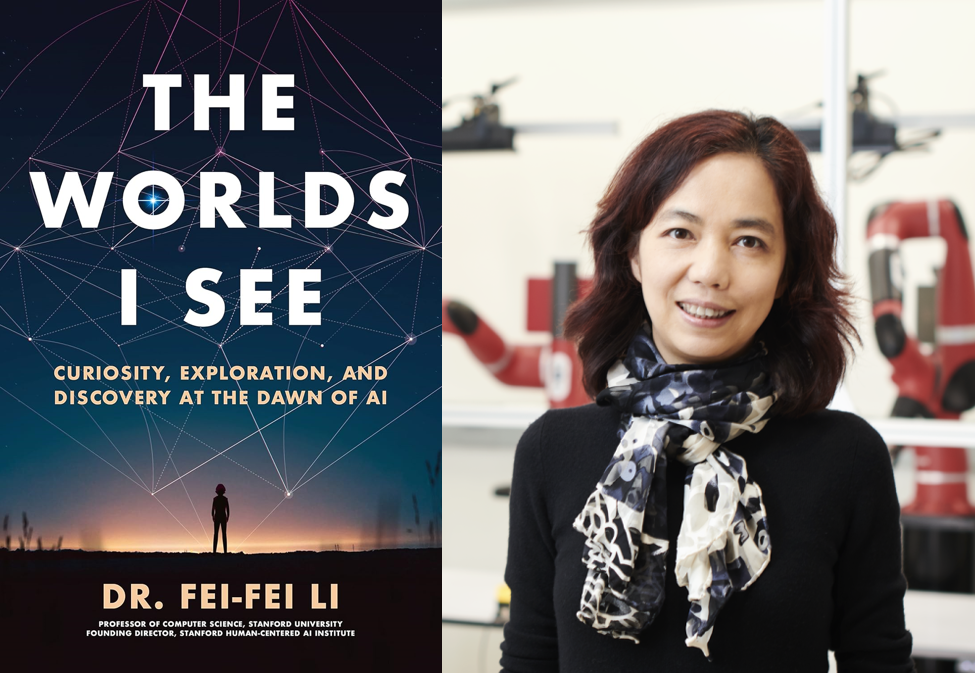Radical is a different kind of VC. They are at the center of a global AI talent ecosystem driving the innovations that will ultimately transform every company and every industry and touch every person. This conviction informed my decision to join Radical as a Scientific Partner – a commitment that I will add to my appointment as professor in the Computer Science Department at Stanford University, and Co-Director of Stanford’s Human-Centered AI Institute.
I have known Jordan and the team at Radical for years, and I have had the opportunity to see their work up close. Over the past two years I have worked closely with several of Radical’s founders, I have invested in Radical’s portfolio companies and latest fund, and I participated in Radical’s AI Founders Master Class, sharing my experience as a researcher with hundreds of diverse up-and-coming AI researchers and entrepreneurs. Radical is dedicated to nurturing the talent at the heart of the global AI ecosystem and helping to build AI products and companies that make the world a better place for all.
I have always believed that machine values are simply human values. AI, as exciting as the technology may be, is made, and will be used, by people. It is human-centered. Radical is committed to building this technology in a thoughtful and responsible way. I care deeply that AI advances humanity and benefits our communities. Joining Radical represents a continuation of my passion for innovation, and a desire to work with a firm that is deeply committed to building a responsible future for AI.
I look forward to working with Radical’s founders, helping them build great companies powered by innovative and groundbreaking research. And a small note for my students: I’m not going anywhere! I will continue my full-time work at Stanford University as an educator, researcher and mentor.
Fei-Fei Li is a Professor in the Computer Science Department at Stanford University, and the Denning Co-Director of Stanford’s Human-Centered AI Institute. Dr. Li is the creator of ImageNet and the ImageNet Challenge, a critical large-scale dataset and benchmarking effort that has contributed to the deep learning and AI revolution. In addition to her technical contributions, she is a national leading voice for advocating diversity in STEM and AI. She is co-founder and chairperson of the national non-profit AI4ALL aimed at increasing inclusion and diversity in AI education. Dr. Li is an elected member of the National Academy of Engineering (NAE), the National Academy of Medicine (NAM), and American Academy of Arts and Sciences (AAAS).
AI News This Week
-
OpenAI rival Cohere AI has flown under the radar. That may be about to change. (VentureBeat)
Cohere is OpenAI’s primary competitor and a Radical Ventures portfolio company. Cohere is led by CEO Aidan Gomez, a co-creator of the transformer architecture underpinning generative AI including ChatGPT, and has recently brought on Martin Kon as President & COO. Martin left his role as CFO of Google’s YouTube division to join Cohere. Cohere enables every enterprise and developer to access and build products with the world’s leading language AI.
-
Researchers discover a more flexible approach to machine learning. (Quanta Magazine)
A new approach to machine learning is inspired by the nervous system of worms and is being called “liquid neural networks.” The approach is more flexible than traditional machine learning, and it can learn from incomplete data sets and adapt to changes in the environment more quickly. The approach was developed by scientists at the University of Edinburgh and Google’s DeepMind. The team’s research shows that liquid neural networks can be used in a wide range of tasks, including robotics and natural language processing.
-
What ChatGPT and generative AI mean for science. (Nature)
Researchers are using LLMs to be more productive. Some scientists say they now regularly use LLMs not only to edit manuscripts, but also to help them write or check code and to brainstorm ideas. Although these assistants can improve research papers and catch minute errors, scientists caution that they are not foolproof and occasionally provide erroneous or misleading information. But, artificial intelligence’s future acceptance in society seems assured, especially since today’s tools represent only the beginnings of the technology. As noted in the article, “LLMs are destined to be incorporated into general word- and data-processing software.”
-
Your native tongue holds a special place in your brain, even if you speak 10 languages. (Science)
There is a unique relationship between the brain and language. Recent brain imaging studies which show the brain seems to be more active when a person speaks their native language compared to other languages. This study contributes to our understanding of how our brain learns new things. With the current focus on LLMs, breakthroughs in neuroscience and how we learn languages will likely continue to be a design inspiration for multilingual AI systems.
-
Listen: Bill Gates on the disruptive power of AI (Handelsblatt)
Gates noted in a podcast with German-language newspaper Handelsblatt that AI is currently the “most important” innovation. He also addresses the economy, noting that machines may take over routine tasks, but employees can concentrate on the important activities of their job.
Radical Reads is edited by Leah Morris (Senior Director, Velocity Program, Radical Ventures).





